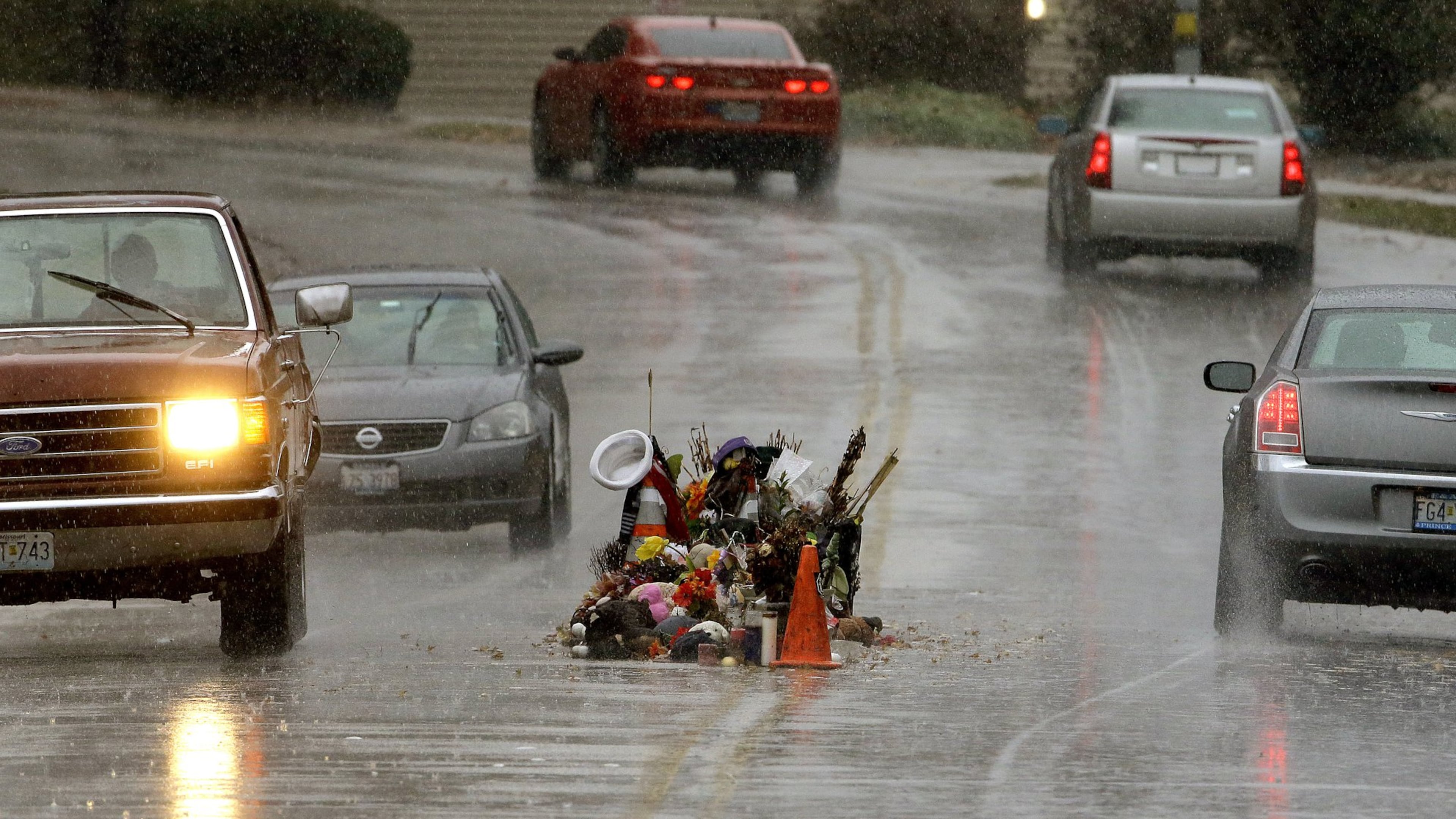A tense nation awaits Ferguson decision

Metro Atlanta is crackling with anticipation over the impending decision in Ferguson -- the announcement is expected at 9 p.m. Monday -- and experts say many people will view the decision along racial lines no matter which way the grand jury decides.
Throughout the metro area, and across the country, people are eagerly watching television and monitoring social media, awaiting the decision. Behind that anxiety is the fear that the decision could lead to angry protests and violence.
“We are all anxious, we are all upset,” said Markel Hutchins Wednesday afternoon while waiting for the decision outside Ebenezer Baptist Church downtown. “But violence only begets more violence.”
Asked what would happen if the grand jury decided not to charge the white officer who shot Michael Brown, Hutchins replied: “There’s going to be some protests, some demonstrations no matter what the grand jury does.”
Several political scientists say they believe people have already made up their minds about this case, and a person’s race has much to do with his view.
“People on both sides have already constructed a narrative about this, and the judgment is going to be measured against that narrative,” said Robert Grafstein, a University of Georgia political science professor.
In general, it’s easier for white people to see a white police officer as a trustworthy figure, he said. If there is no indictment against Officer Darren Wilson, many whites will see it as proof that the grand jury system is working properly.
If there is an indictment, Grafstein said, many white people will see it as the grand jury succumbing to intense political pressure, attempting to head off potential rioting.
For many blacks, though, this case has become personal, and they are already skeptical about the prospect of finding justice under the law, said Andra Gillespie, associate professor of political science at Emory University.
A no-bill in this case, she said, will “amount to reinforcement that justice is different if you’re African-American. It’s another piece of evidence.”
Gillespie, who is interim chair of African-American studies at Emory, believes blacks have been more attuned to the case.
“Many blacks take this a little personally. It’s easy for them to imagine themselves in Brown’s shoes,” she said.
An indictment, for black Americans, will be a small victory, an “intermediary step.” They will await a trial before judging whether this is a moment of justice or not.
A group of young activist organizations plans a demonstration at Underground Atlanta Tuesday at 5 p.m. Hutchins said there will be another demonstration Tuesday at Woodruff Park downtown. But he emphasized that they will be nonviolent protests.
"We want to say to this community, and to the nation, that Atlanta does things this way," Hutchins said. "We know how to work together, protecting property, protecting personhood, but also protecting people’s rights to express themselves.”
The district attorney in St. Louis County did not recommend any particular charge to the grand jury. It could come back with anything from first-degree murder to unlawful discharge of a firearm to nothing at all.
The grand jury’s standard of proof is “probable cause” to believe Wilson committed a crime, rather than the tougher standard at trial of “beyond a reasonable doubt.”
In Missouri, a grand jury can indict if nine of the 12 jurors agree. It needn’t be unanimous.
More Stories
The Latest

